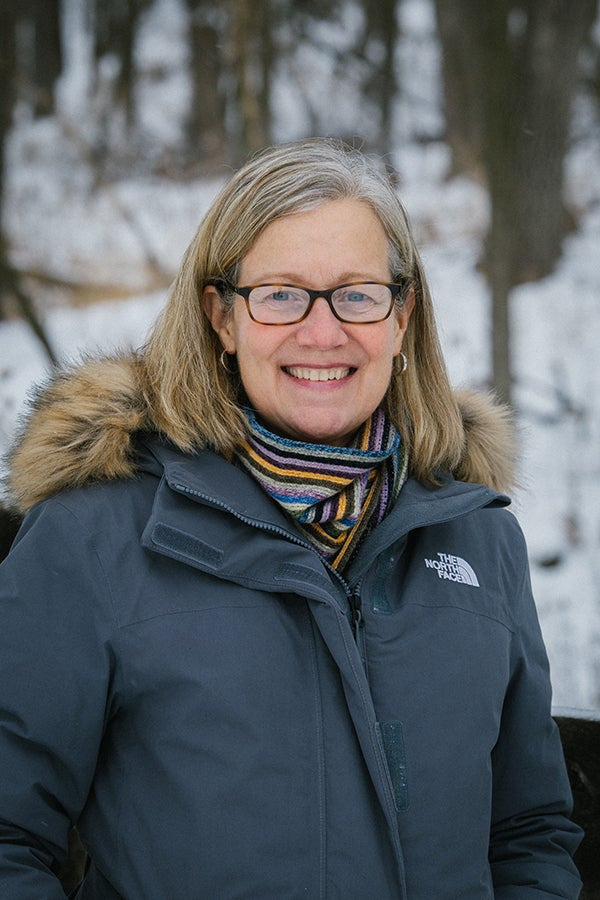Molly McNicoll

About
Education: Ph.D., Plant Biology, University of Illinois, M.S., Plant Biology, University of Illinois, B.S. Botany, Biological Aspects of Conservation, University of Wisconsin at Madison
I regularly teach an upper-level Restoration Ecology and Conservation Biology course, (an introduction to the ecology and decision-making required to promote healthy native ecosystems), Intro to Geographic Information Systems (GIS), a non-majors conservation course, and a January-term study abroad in Tanzania that focuses on the cross section of conservation and culture. For up-and-coming biologists and conservation practitioners, I emphasize engagement in community-based projects and applying your scientific and people-skill knowledge to real world challenges and solutions.
Land Stewardship
Although my background is in traditional ecological study, I am interested in how we can apply our ecological knowledge to maintain and restore native habitats. As Luther’s Natural Areas Land Manager, I have the incredibly satisfying job of working with students, faculty, and staff to care for our woodlands, prairies, and other habitats. The process of land stewardship provides a natural opportunity for student learning and experimental research – as student interns have been involved in planning, research, and implementation. Please contact me if you are interested in school year or summer internships. Want to get to know Luther’s natural areas?
My research typically focuses on plant community ecology, such as what promotes (or inhibits) coexistence of plants species in a community, plants with herbivores, and with processes such as fire and other disturbances. My research focuses on prairies, Midwestern forests, woodlands, and savannas. I am happy to pursue research opportunities with students during the summer. Past research with Luther students includes examining the effect of fire on oak woodland restoration, various aspects of woodland and prairie restoration, and our research frequently includes invasive plant species, such as the effect of management on wild parsnip (Pastinaca sativa).